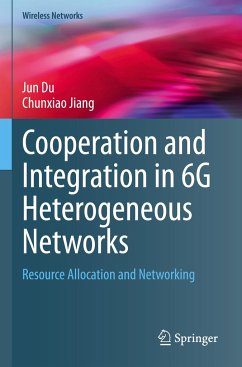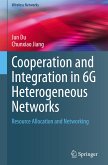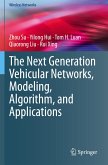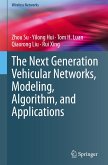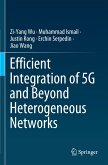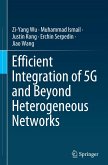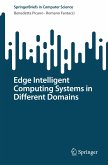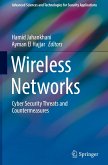To provide ubiquitous and various services, 6G networks tend to be more comprehensive and multidimensional by integrating current terrestrial networks with space-/air-based information networks and marine information networks; then, heterogeneous network resources, as well as different types of users and data, will be also integrated. Driven by the exponentially growing demands of multimedia data traffic and computation-heavy applications, 6G heterogenous networks are expected to achieve a high QoS with ultra-reliability and low latency. In response, resource allocation has been considered an important factor that can improve 6G performance directly by configuring heterogeneous communication, computing and caching resources effectively and efficiently.
The book addresses a range of technical issues in cooperative resource allocation and information sharing for the future 6G heterogenous networks, from the terrestrial ultra-dense networks and space-based networks to the integrated satellite-terrestrial networks, as well as introducing the effects of cooperative behavior among mobile users on increasing capacity, trustworthiness and privacy. For the cooperative transmission in heterogeneous networks, the authors commence with the traffic offloading problems in terrestrial ultra-dense networks, and the cognitive and cooperative mechanisms in heterogeneous space-based networks, the stability analysis of which is also provided. Moreover, for the cooperative transmission in integrated satellite-terrestrial networks, the authors present a pair of dynamic and adaptive resource allocation strategies for traffic offloading, cooperative beamforming and traffic prediction based cooperative transmission. Later, the authors discuss the cooperative computation and caching resource allocation in heterogeneous networks, with the highlight of providing our current studies on the game theory, auction theory and deep reinforcement learning based approaches. Meanwhile, theauthors introduce the cooperative resource and information sharing among users, in which capacity oriented-, trustworthiness oriented-, and privacy oriented cooperative mechanisms are investigated. Finally, the conclusion is drawn.
The book addresses a range of technical issues in cooperative resource allocation and information sharing for the future 6G heterogenous networks, from the terrestrial ultra-dense networks and space-based networks to the integrated satellite-terrestrial networks, as well as introducing the effects of cooperative behavior among mobile users on increasing capacity, trustworthiness and privacy. For the cooperative transmission in heterogeneous networks, the authors commence with the traffic offloading problems in terrestrial ultra-dense networks, and the cognitive and cooperative mechanisms in heterogeneous space-based networks, the stability analysis of which is also provided. Moreover, for the cooperative transmission in integrated satellite-terrestrial networks, the authors present a pair of dynamic and adaptive resource allocation strategies for traffic offloading, cooperative beamforming and traffic prediction based cooperative transmission. Later, the authors discuss the cooperative computation and caching resource allocation in heterogeneous networks, with the highlight of providing our current studies on the game theory, auction theory and deep reinforcement learning based approaches. Meanwhile, theauthors introduce the cooperative resource and information sharing among users, in which capacity oriented-, trustworthiness oriented-, and privacy oriented cooperative mechanisms are investigated. Finally, the conclusion is drawn.

